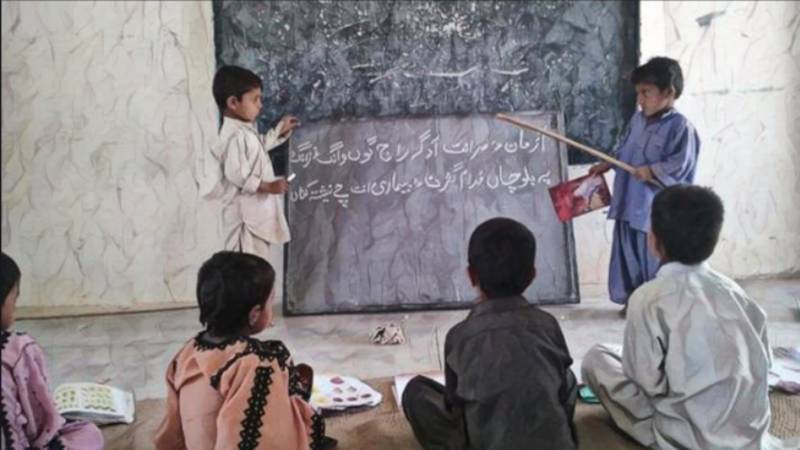
Balochi literature holds a pivotal position in Balochistan, serving as a beacon for Baloch people worldwide. Literature encompasses the core aspects of a nation, spanning communication, culture, and language. Balochi literature, like all languages, possesses its own unique beauty, setting it apart from global literature. This ancient and esteemed language, spoken across several countries, exudes its inherent charm and linguistic structure, resonating deeply with every Baloch. Balochi language symbolises the essence of the Baloch identity, serving as the primary foundation of Balochi literature. Recognizing Baloch culture, especially in Balochistan, primarily hinges on the preservation and promotion of their mother tongue.
Language, as a fundamental component of national identity, functions as a powerful tool for communication and connection with the world. Across the globe, countless languages, each with its distinct allure, structure, and grammar, play a pivotal role in shaping and enriching nations. Yet, the Balochi language, one of the world's oldest and most distinguished languages, endures as an important emblem of Baloch heritage, delighting its speakers with its unique characteristics. Balochi language is the definitive identifier of the Baloch people and constitutes the heart of Balochi literature, showcasing its historical significance.
The importance of one's mother tongue cannot be overstated, as it epitomises the true identity of its speakers. Every mother tongue possesses its own elegance and melody, resonating with its users and constituting the cornerstone of a nation's communication system and literary heritage. It not only shapes literature but is also shaped by it. A mother tongue is integral to the creation of an entire nation, as no nation can be built without a significant language. Thus, language is the very soul that sustains the existence of nations.
Balochistan, Pakistan's most resource-rich province, boasts a plethora of talented Baloch individuals eager to explore their history and immerse themselves in Balochi literature. However, it is disheartening that the Baloch people are compelled to focus on national and international languages within Balochistan's educational institutions.
The desire to embrace one's mother tongue in educational institutions is universal, but in Balochistan, Balochi is an underappreciated language, dashing the hopes of its people. Balochi, the mother tongue of the Baloch and one of the world's grandest languages, is notably absent from the curriculum in Balochistan's schools. Even in colleges and universities, Balochi language finds itself overshadowed by other languages.
Baloch students yearn to explore their native language, but the absence of Balochi in educational institutions thwarts their aspirations. A language cannot flourish without educational support, and Balochistan is home to numerous educational institutions, including schools, colleges, and universities, yet when it comes to Balochi, none offer comprehensive language education. Baloch students fervently wish to immerse themselves in their mother tongue, read Balochi literature, and craft Balochi writings, but the opportunities are limited.
The words of Cherag Ahmed, a 9th-grade student, echo the struggles of Baloch students. He laments, "I am about to complete my matriculation in a year, yet I have not had the chance to study my mother tongue throughout my school life. I was eager to learn it, but my school did not provide support for the Balochi language."
These heart-rending accounts of Baloch students highlight the unfortunate status of the Balochi language in Balochistan. Balochi is the lifeblood of Baloch students, fuelling their dreams and aspirations. They possess a deep-seated interest in Balochi language and literature, yet they remain deprived of access to it within their educational institutions.
Dad Shah Barkat, a 7th-grade student in a private school in Kech, voices his concerns: "I yearn to read Balochi books and write in Balochi, but my school insists on teaching English and Urdu instead of my mother tongue. It cannot quench my thirst for Balochi. When I inquired about introducing a Balochi subject, my school teachers provided no satisfactory response."
The death of a language has profound repercussions, as it is the soul of a nation and the heartbeat of its people. A nation's progress is intrinsically linked to the presence of its language. As the saying goes, to destroy a nation, one must first obliterate its language, for language is the foundation and the driving force behind the existence of nations.
Razak Baloch, a college student, bemoans his situation: "I consider myself unlucky to reside in Balochistan, where my mother tongue is not taught. I had lofty aspirations of writing a book in Balochi, but the absence of Balochi in my school has cast a shadow over my dreams."
Every individual aspires to create in their mother tongue, and Baloch are no different. They long to explore Balochi literature and language, to read Balochi books, and to pen their thoughts in Balochi. Sadly, these aspirations are largely unmet in Balochistan.
Sakim Feroz, a student at the University of Turbat, harboured ambitions of becoming a renowned Balochi writer. However, the absence of Balochi subjects during his schooling years shattered his dreams: "My interest in Balochi began in my childhood, and I aspired to be a well-known Balochi writer in Balochistan. When I didn't see Balochi subjects in school, all my hopes were dashed, and my heart broke."
Research has shown that more than 7,000 languages exist in the world, but many are at risk of extinction. A language dies every 14 days, and most languages that disappear are those not spoken or taught in educational institutions. Language, therefore, plays a pivotal role in nurturing literature and invigorating nations. It is imperative for the government and educational authorities to prioritise the preservation and promotion of Balochi language.

